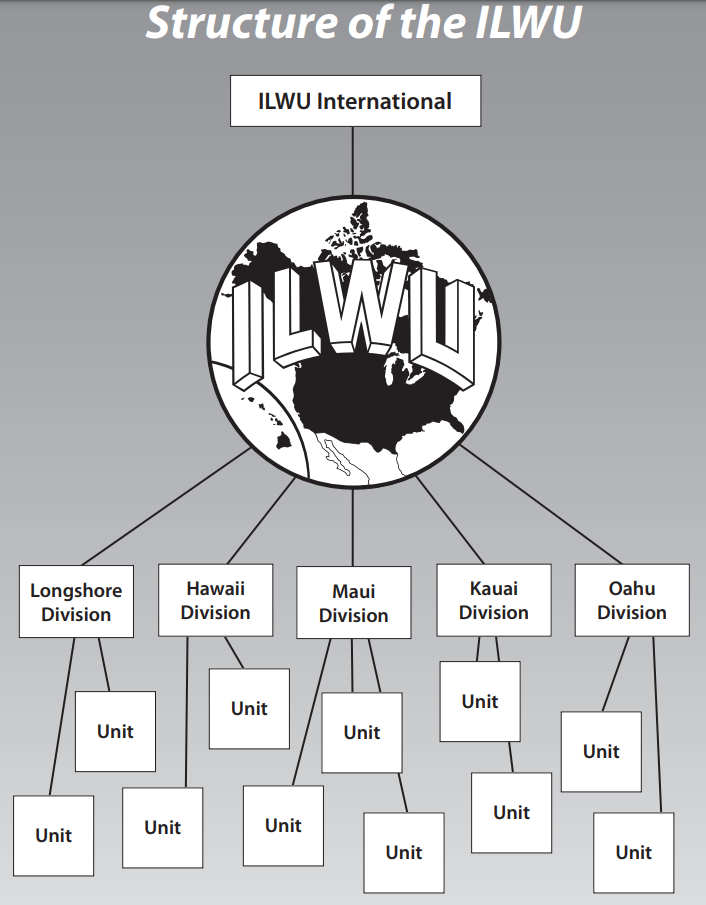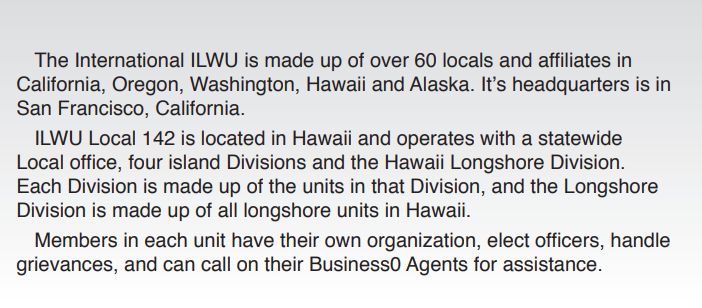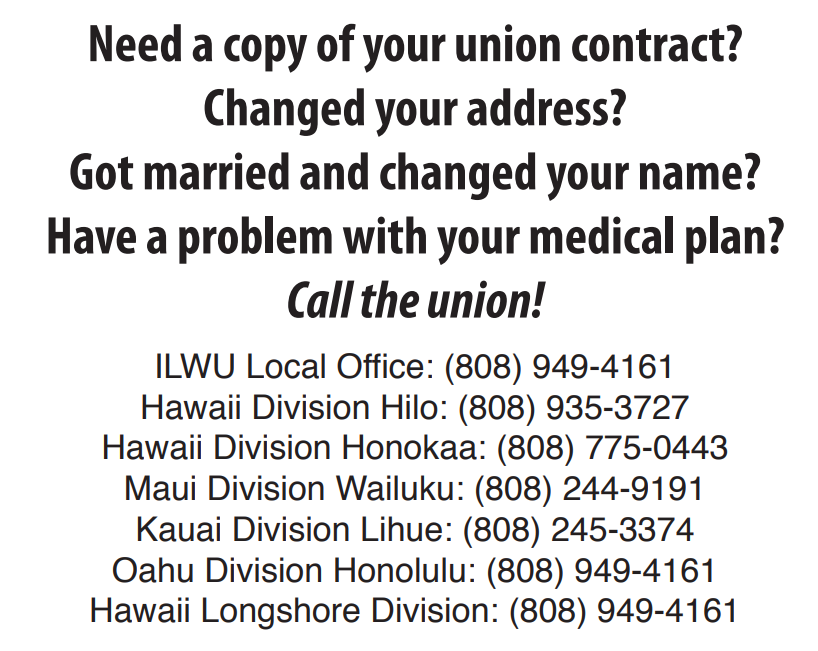Every ILWU member is advised to see a steward or unit officer first about problems or concerns on the job. As a member, you are advised never to try to settle your problems with management by yourself.
There are four reasons for this:
1) the member will not have the strength of the union behind them;
2) the member may make a deal with management that could hurt other members or even be a violation of the contract;
3) the member is not trained to handle the grievance properly and may miss time limits and make other mistakes; and
4) it weakens the union because management knows that workers who bypass the union are not strong union members and will use these workers to divide the union.
Work first and grieve later
Members should be advised to “work first and grieve later.” This means a member should obey their supervisor’s order and do the work, even if they believe it is a violation of the contract or unfair treatment. They should politely inform their supervisor that they will be seeing their union steward about the matter.
There are only three exceptions to “work first and grieve later”—if the job is dangerously unsafe, illegal, or immoral. You should protest to the boss and offer to do something else. You still risk being disciplined for insubordination, but if the job was really unsafe, illegal, or immoral, the discipline will probably not be upheld.
Members should be educated that they have the right to ask for a union representative when management calls them into a meeting or asks them questions which could lead to disciplinary action. This includes a telephone call from the boss.

Local Election Committee Chair Eddie Sekigawa (from Unit 4409 - Island Movers Inc.) teaches a class on how to conduct union elections to Big Island Unit Balloting Committee members. Electing union officers is an important responsibility shared by all ILWU members.
This is called Weingarten Rights. Once the member asks for a union representative, the company should stop the discussion, and the member should not answer any more questions.
The company can call any steward available—the member cannot insist on a particular unit officer or business agent.
When a union steward arrives, the member should consult with the steward first, but the company can continue the questioning.
The union contract isn’t enforced by the steward alone or by the business agent. The individual member is just as responsible as anyone else for seeing that the contract is enforced. In fact, unless members know their rights under the contract, the officers and stewards cannot possibly do their job.
How can YOU support your union?
Union members can do their part in supporting their union. Specifically each member should:
1. Know the terms of the contract so that they can recognize violations by the employer and help other workers learn about the contract.
2. Call all violations of the contract to the attention of their union steward or business agent.
3. Assist the steward in every way to find all the facts about a given violation or grievance.
4. Go with the steward or business agent, if asked, to see the supervisor. In these meetings, the individual member should follow the tactics agreed upon in advance, let the steward or business agent do most of the talking, and be prepared to support them with the facts when called upon.
5. Recognize that sometimes their grievance is not a good one and that the steward is correct in refusing to handle it. It may not be a good grievance because the member doesn’t understand the contract. If the steward fails to convince the member that his grievance is a poor one, the member has the right to speak to the unit officers or business agent.
6. Attend union meetings and volunteer for union political action. Read the union bulletin board, The VOICE of the ILWU, and help make and carry out union policy.
7. See to it that the members who work beside them are good union members too; that they are members in good standing; that they attend union meetings, and do their part in building the union.



